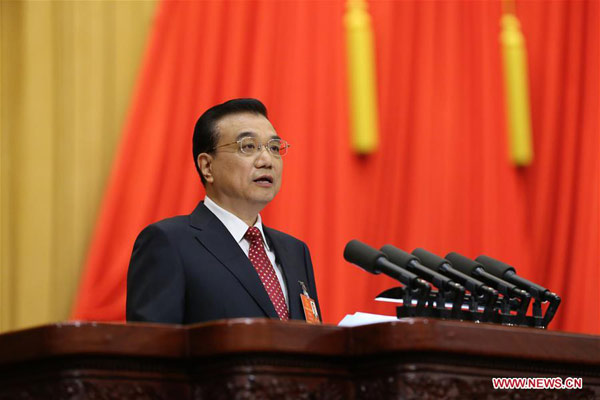 |
|
Chinese Premier Li Keqiang delivers a government work report during the opening meeting of the fourth session of the 12th National People's Congress at the Great Hall of the People in Beijing, March 5, 2016. [Photo/Xinhua] |
BEIJING - China's higher fiscal deficit rate budgeted for 2016 should not be considered strong stimulus, and the country still has ample policy tools to arrest downward economic pressure, a senior official of China's Cabinet research office said Saturday.
A 3-percent deficit-to-GDP ratio is within a safe margin and is still relatively low compared with that of many developed countries, which set the ratio well above 3 percent, said Huang Shouhong, deputy director of the State Council Research Office at a news conference.
China will increase deficit-to-GDP ratio to 3 percent this year from 2.3 percent last year, and cut taxes across the board, Premier Li Keqiang said Saturday at the annual parliamentary session.
The expansion is mainly aimed at reducing costs for firms, and should not be interpreted as strong stimulus, Huang said.
For the past few years, the government has refrained from using mass quantitative easing to battle the economic slowdown but rather has pushed structural reforms, which proved successful in reinvigorating the economy.
"The Chinese government still has enough innovative policy tools to battle the downward pressure," Huang said. "With enough weapons and bullets, we can fire whenever we need."